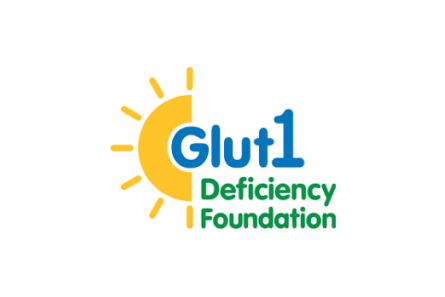Glut1 Deficiency Foundation
Cycle 1
Glut1 Deficiency is a rare genetic condition that impairs brain metabolism. It is caused by mutations or variants in the SLC2A1 gene, which encodes the glucose transporter protein type 1 (Glut1). Glut1 is the principal transporter of glucose and also moves other important sugars across the blood-brain barrier. Impaired glucose transport associated with Glut1 Deficiency creates a metabolic crisis in the brain and often results in a range of neurological symptoms such as seizures, speech and movement disorders, and developmental delays.
Last updated 04/30/2025
Clinical
Disease Class
Genetic diseases
Inherited metabolic disorder
Neurological diseases
Body Systems
Metabolic
Muscular / Skeletal
Nervous / Sensory
Organs
Brain
Eyes
Muscles
Nerves
Known Genetic Link
Yes, one or more genes directly cause the condition
causative_genes
SLC2A1
contributory_genes
None specified / unknown
Type of Inheritance
Autosomal dominant
Newborn Screening
No
Disease Mechanism(s)
Glycogen pathway dysregulation
Glycogen storage disease
Glycosylation disorder
Inherited metabolic disorder
Pathogenic mutation
Protein misfolding
Transport defect
Age of Onset
Adolescence (12-17)
Early childhood (age 1+-5)
Infancy (age 0-1)
Middle childhood (6-11)
Average Age at Diagnosis
Early childhood (age 1+-5)
Middle childhood (6-11)
Life Expectancy
Adulthood (age 18-64)
Elderly (age 65+)
Affected Sex(es)
Female
Male
National Prevalence
10000+
Global Prevalence
10000+
National Incidence
Less than 10
Global Incidence
Less than 10
Symptoms / Phenotypes
cognitive decline
developmental delay
headaches / migraines
movement disorders / ataxia / tremor
seizures / epilepsy
speech problems / apraxia
Biomarkers
Diagnostic
· low CSF glucose with normal blood glucose; characteristic glucose uptake patterns on PET scan
Monitoring
Other
Prognostic
· CSF glucose absolute level as well as the ratio to blood; type of variant
Therapeutic
· blood ketone levels (ketogenic diet)
Existing Therapies
Complementary and Alternative treatments
· ketogenic diets; MCT oils
Off-Label Drug Use
Organizational & Research
Cell Lines
Fibroblasts
iPSCs
LCLs
Plasma
Cell Lines, Institution
COMBINEDBrain
Coriell Institute
Max Delbrück Center for Molecular Medicine
Van Andel Institute
Cell Lines, Involvement
Funded
Own
Cell Lines, share
All our cell lines are freely available
Disease Model
Mouse
Disease Model, Involvement
Funded
Disease Model, share
N/A
Clinical Trial Role
Data sharing
Focus group
Funding
Other consulting
Outcome measures, development
Recruitment and outreach, patients
Recruitment and outreach, trial sites/physicians
Study protocol design, review
Travel coordination
Biobank, Institution
COMBINEDBrain
Coriell Institute
Van Andel Institute
Biobank, Involvement
Funded
Own
Center of Excellence, Institution
None
Registry
Yes, we have collaborated on a registry
Data Collected, Registry
Genetic data
Medication usage
Patient-reported data
Data Entered by, Registry
Patients
Platform, Registry
REDCap
Natural History Study
Yes, we have a natural history study that we created
Data Collected, Natural History Study
Electronic health records/electronic medical records
Genetic data
Imaging data
Medication usage
Patient-reported outcomes
Prospective data
Retrospective data
Platform, Natural History Study
Ciitizen
Matrix
FDA Patient Listening Session
No
FDA Patient-Focused Drug Development (PFDD) Program
No
ICD Codes
Yes, we have an ICD-10 code specific to our exact disease
Diagnostic Guidelines
Yes, we have guidance available on our website
Yes, we have published formal guidelines in a peer-reviewed journal
Science Advisory Board Policies
Yes, willing to share SAB policies
Research Network Policies
Has CRN but no policies
Research Roadmap
Yes we have a Research Roadmap, and will share policies
International Chapters
None
International Partners
Europe
Oceania
